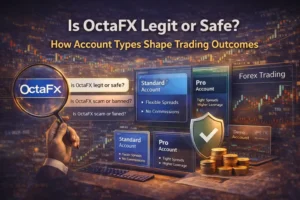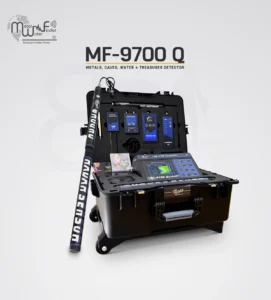Why Fairness Matters in Online Gambling
One of the most important factors in online gambling is fairness. When players invest their time and money into a game, they expect a level playing field. Whether it’s slots, roulette, or poker, fairness guarantees that every player has an equal and random chance of winning. This is especially relevant when it comes to platforms outside the UK’s regulatory umbrella, particularly casinos not on GamStop.
GamStop is a UK-based self-exclusion system that restricts access to licensed UK gambling websites for those who want help controlling their habits. However, many players seek alternatives not part of this network for more flexible gaming options, better promotions, or faster withdrawals. But this leads to an essential question: If these casinos aren’t under UK regulation, who makes sure they’re fair?
Who Oversees Casinos Not on GamStop?
Casinos that are not registered with GamStop typically hold licenses from international regulators. While they aren’t overseen by the UK Gambling Commission, many operate under jurisdictions known for solid oversight. Some of the most recognized authorities include the Malta Gaming Authority (MGA), the Curacao eGaming authority, and the Gibraltar Gambling Commissioner.
Each of these licensing bodies has its own set of rules and standards. For example, the Malta Gaming Authority is known for enforcing strict measures around data protection, responsible gambling tools, and fair play. While the Curacao license is often considered less rigorous, it still requires casinos to meet baseline legal and technical standards, including fairness testing.
The presence of these licenses shows that these sites are not unregulated. They must go through periodic inspections and audits to keep their license active. This provides some level of assurance for players who want to enjoy gambling outside the UK’s self-exclusion system.
How Do These Casinos Prove Their Fairness?
Independent RNG Testing
Random Number Generators (RNGs) are the heart of fairness in digital gambling. They ensure that each card dealt or spin on a slot machine is completely random and free from manipulation. Independent organizations such as iTech Labs, eCOGRA, and Gaming Laboratories International (GLI) conduct tests on these systems to make sure the outcomes cannot be predicted or influenced.
When a casino has passed these tests, it often displays certification badges from these testing agencies on its website. Clicking on these badges usually leads to detailed audit reports or summaries that validate the fairness of their games.
Return to Player (RTP) Transparency
Another major factor that helps prove fairness is the disclosure of Return to Player (RTP) percentages. These statistics show how much of the money wagered on a game is paid back to players over time. For instance, a slot with a 96% RTP is programmed to return £96 for every £100 wagered, on average.
Reputable non-GamStop casinos frequently publish their RTP data, either on individual games or through monthly reports. This level of transparency is a positive sign that the casino values fair play and accountability.
Can You Trust All Non-GamStop Casinos?
While many offshore casinos operate honestly, it’s important to recognize that not all of them are equally reliable. Some rogue sites take advantage of the fact that they operate outside of UK oversight and may cut corners when it comes to fairness or even delay payouts intentionally.
This is why it’s essential for players to do their own research before registering or depositing funds. Look for detailed license information in the website footer, check for independent testing seals, and read player reviews on trusted forums. If a casino lacks licensing, has many unresolved complaints, or hides its terms and conditions, it’s a red flag.
How Players Can Protect Themselves
Look Beyond the Homepage
Not all information is front and center on a casino’s homepage. Often, licensing details and audit results are tucked away in the site’s footer or under the “About Us” or “Terms and Conditions” pages. Taking a few minutes to locate and verify this information can save you a lot of trouble later on.
Stick to Recognized Software Providers
Fairness isn’t just about the casino—it’s also about the software providers they partner with. Well-known providers like NetEnt, Microgaming, and Play’n GO are known for delivering fair, regularly audited games. If a casino works with these reputable developers, it’s usually a positive sign.
Utilize Responsible Gambling Tools
Even though these platforms are not tied to GamStop, many of them still provide tools for players to set limits, pause their account, or self-exclude. These features can be a big help in maintaining control over your gambling habits and ensuring that your experience remains enjoyable.
Are Casinos Not on GamStop a Safe Option?
When approached with caution and proper research, casinos outside the GamStop network can be just as fair and secure as UK-regulated sites. The key is in verifying licensing, checking for independent audits, and reading real player feedback.
These platforms offer flexibility and access to broader game selections and bonuses, but they also demand more responsibility from the player. Without UK oversight, you’ll need to rely on your judgment and research to choose the right platform.
If fairness is your top concern, look for sites that are not only licensed but also transparent in publishing audits, RTP data, and testing certifications. That way, you can enjoy the variety and freedom offered by these casinos while still feeling confident that the games are not stacked against you.
Final Thoughts
Casinos not on GamStop are often misunderstood as unregulated or unfair, but that’s not always the case. Many of these platforms are licensed in other respected jurisdictions and undergo regular fairness audits by third-party agencies. By choosing wisely, looking for licenses, and checking for RNG certifications, players can safely enjoy their favorite games without compromising on integrity.






